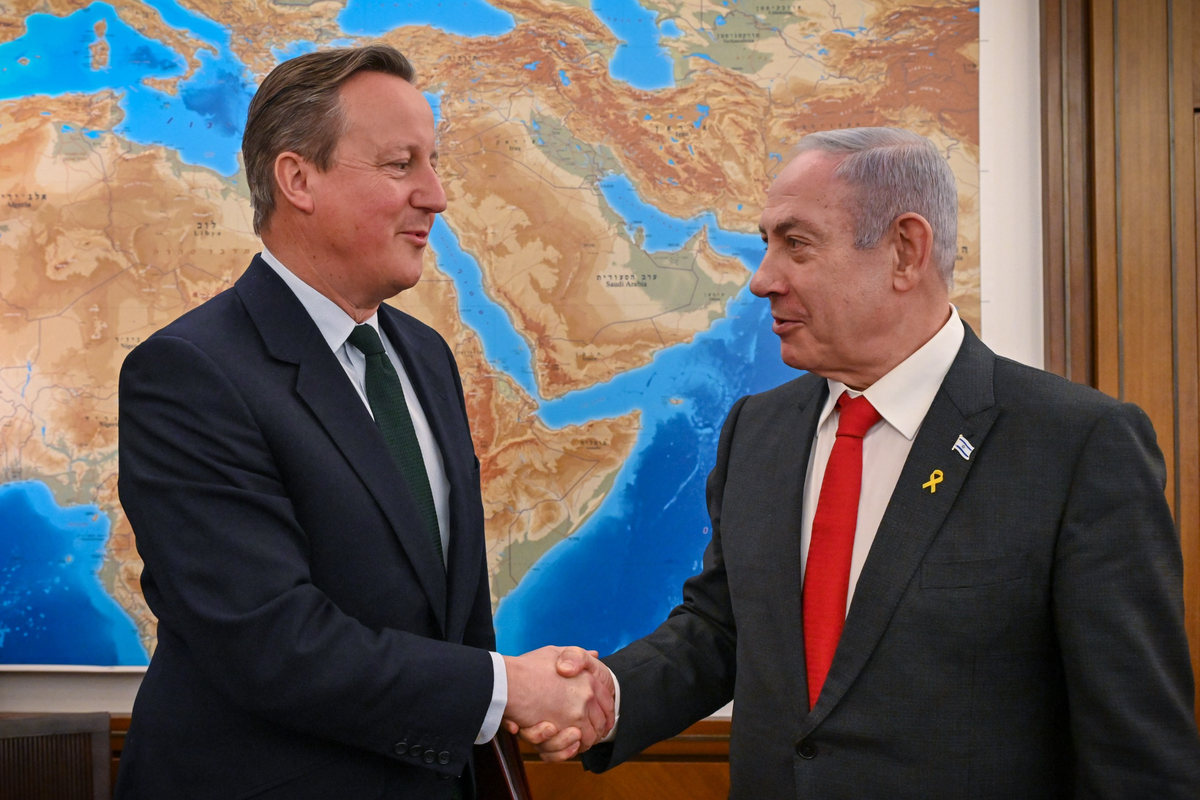Middle East crisis: Lord Cameron back in region as US warns of 'sustained' reprisals for deadly drone strike

Foreign Secretary Lord Cameron headed back to the Middle East on Tuesday as tensions spiralled following a deadly drone attack on US troops in Jordan, which sparked threats of “sustained” reprisals from Washington.
The former PM was holding talks in Oman after indicating that the Government could bring forward recognition of a Palestinian state before any peace deal with Israel, despite outspoken hostility to the idea from Israeli leader Benjamin Netanyahu, whom he met in Jerusalem last week.
On his fourth trip to the region since his surprise return to the Cabinet in November, Lord Cameron was also expected to press for action against Iranian-backed Houthi rebels who have been attacking cargo ships in the Red Sea from Yemen.
“And we cannot ignore the risk that the conflict in Gaza spreads, spilling over borders into other countries in the region,” he said ahead of the trip. “We will do everything we can to make sure that does not happen – escalation and instability is in nobody’s interests.”
But the Palestinian people also need a “horizon” and “irreversible progress” for a two-state solution, Lord Cameron said at a reception on Monday with Arab ambassadors as he promoted a five-point British plan to end Israel’s war in Gaza.
The plan envisages a permanent ceasefire and release of all Israeli hostages held by Hamas, alongside US-led negotiations in Paris involving CIA Director William Burns with intelligence chiefs from Israel, Qatar and Egypt.
US Secretary of State Antony Blinken expressed hope the Paris talks could see the resumption of a Qatari-mediated negotiating process between Israel and Hamas. But he also pointed to simmering tensions that are stoking fears of a wider war after a night-time drone attack on sleeping personnel killed three Army soldiers at a remote US base on Jordan’s borders with Syria and Iraq.
US officials said an Iranian-made drone was used in the weekend strike, the first to claim American military lives in hostile action since Hamas’s incursion into southern Israel sparked the Gaza conflict in October.
The Pentagon named those killed as Sergeant William Rivers, 46, Specialist Kennedy Sanders, 24, and Specialist Breonna Moffett, 23, all from an Army reserve unit in the state of Georgia.
There were suggestions of a catastrophic intelligence failure after the hostile drone was possibly mistaken for a US drone returning from a mission in the area. The attack was claimed by a coalition of Iranian-backed militant groups based in Iraq, but Tehran denied any responsibility.
Mr Blinken noted President Joe Biden’s vows of revenge but said the US administration would not be rushed into action.
“We will respond, we will respond strongly, we will respond at a time and place of our choosing,” the top US diplomat said at a news conference with NATO Secretary General Jens Stoltenberg.
“And obviously, I’m not going to telegraph what we might do in this instance or get ahead of the President, but I can, again, tell you that as the President said yesterday (Sunday), we will respond. And that response could be multi-levelled, come in stages, and be sustained over time.”
In the House of Commons on Tuesday, Foreign Office minister Andrew Mitchell said: “The American government and the British government have made it absolutely clear that they do not wish to see this conflict escalate more widely."
But he added that "no country can accept with equanimity, the appalling events that took place and the death of those American soldiers".
Mr Mitchell also insisted that regardless of the Israeli government's views, "we will pursue the policy that we think is right" regarding recognition of a Palestinian state.
“In respect of the conversations that the Foreign Secretary will have had last week with Prime Minister Netanyahu, I cannot trade the details across the House," he told Labour's shadow foreign secretary, David Lammy."But I can tell him that the Foreign Secretary will have represented the British position with Prime Minister Netanyahu – who he knows very well – with great accuracy."


